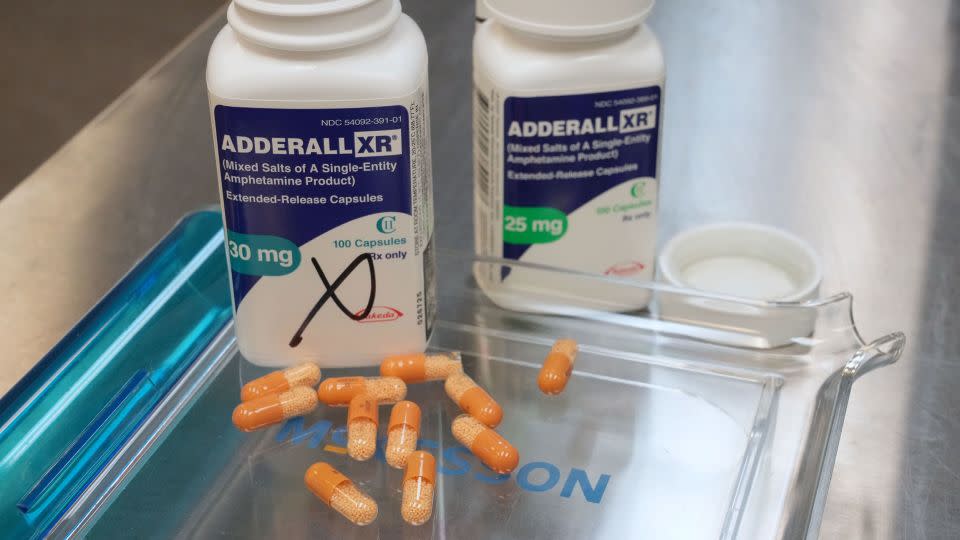Treating ADHD patients with medication linked to lower risk of death overall, study finds

People with attention-deficit/hyperactivity disorder (ADHD) are at increased risk for premature death and other adverse health outcomes, but a large study out of Sweden suggests that treating the disorder with medication can help reduce the overall mortality risk for patients.
Researchers identified nearly 150,000 Swedish residents between the ages of 6 and 64 who were diagnosed with ADHD sometime between 2007 and 2018 and tracked deaths that occurred within two years of diagnosis.
They found that there were 48 deaths for every 10,000 people with ADHD who did not receive medication compared with 39 deaths for every 10,000 people who did receive medication – a 19% decrease in 2-year mortality risk.
Experts say that the new report emphasizes the importance of timely ADHD diagnoses and adds important considerations for clinicians to discuss with patients who are deciding how to manage their ADHD. In the United States, it also adds urgency to address the shortage of Adderall and other stimulant drugs used that has been ongoing since October 2022.
Millions of people in the US have ADHD. In 2021, about 4% of people ages 5 to 54 had filled a prescription for a stimulant in 2021, according to a federal analysis of private insurance records. And prescriptions for ADHD medications surged during the Covid-19 pandemic, especially among young adults and women.
“Undertreating ADHD is not without consequences,” experts from the New York State Psychiatric Institute and Columbia University Irving Medical Center wrote in a corresponding editorial about the new study, both of which published Tuesday in the journal JAMA.
Treatment with ADHD medication especially reduced the risk of death from “unnatural” causes, including accidental injury, suicide and accidental poisoning such as drug overdose. This was particularly true among men, the study found.
People with ADHD have been found to be at higher risk for coexisting mental disorders and neurological conditions such as depression, anxiety, substance misuse or abuse, eating disorders, epilepsy, or conduct or tic disorders.
ADHD medication may alleviate “the core symptoms of ADHD and its psychiatric comorbidities, leading to improved impulse control and decision-making, ultimately reducing the occurrence of fatal events, in particular among those due to accidental poisoning,” the study authors wrote.
While ADHD medications are relatively short-acting, experts say it’s important to consider the broader outcomes along with the immediate benefits.
“When we think about treatment, we think about addressing the negative impacts of the disorder going on right now, but we also want to think about the long-term picture as well,” said John Mitchell, associate professor in psychiatry and behavioral sciences at Duke University School of Medicine. His research focuses on ADHD, but he was not involved in the new study.
“We actually might be able to have an impact on mortality when we correctly identify ADHD and when we treat it,” Mitchell said.
When it comes to “natural” causes of death such as medical conditions, however, the new study found that medication did not significantly affect mortality among ADHD patients.
In some ways, this finding is “reassuring,” especially in light of other recent research that raised concerns about the long-term effects that ADHD medications may have on heart health, the study authors wrote.
The new study did not track how well ADHD patients consistently adhered to the medications they were prescribed, and other lifestyle factors and aspects of care that could affect outcomes were not considered. For these reasons, the link identified between treatment with medication and reduced mortality risk cannot be considered a direct cause-and-effect.
And while the medications used to treat ADHD in Sweden are also available in the US, “significant barriers exist in accessing medical and psychiatric services, particularly among underresourced populations” in the US health care system, experts wrote in the corresponding editorial.
“The health care workforce requires training in screening, diagnosing, and treating ADHD, just as has been done for other psychiatric disorders. Our patients, their families, and society will all benefit as a result.”
CNN’s Kristen Rogers contributed to this report.
For more CNN news and newsletters create an account at CNN.com

